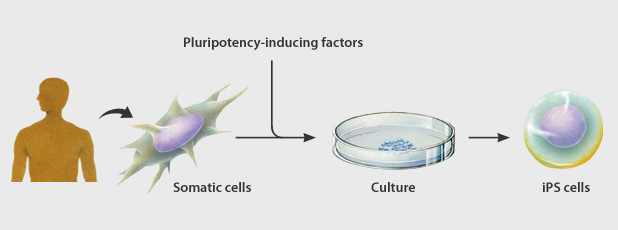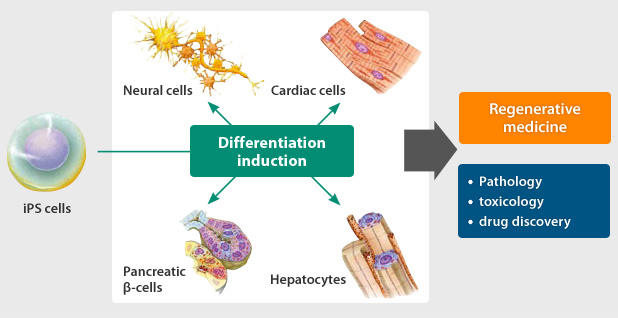
For the Public
For the Public
What are iPS cells?
CiRA IP
The following answers are based on information available as of October 2015.
What intellectual property concerning iPS cells does Kyoto University hold?
Kyoto University holds basic patents associated with iPS cell technology in Japan and in other countries and regions including Europe and the United States. For details, see the CiRA IP page.
How long is the term of the basic patents?
The term of the patents is basically 20 years from the date of filing.
Is the coverage of overseas patents the same as that of the Japanese patents?
They are almost the same. However, they are slightly different because each patent has been issued in different countries with its own examination system.
Which country has CiRA filed for patents in?
We have filed for patents in countries and regions including Australia, Brazil, Canada, China, Egypt, Europe, India, Korea, Mexico, New Zealand, the United States.
Which countries in Europe has CiRA claimed for patents in?
Of the 31 member countries of the European Patent Convention, 17 countries such as France, Germany, and the United Kindom have been selected by Kyoto University.
What is the scope of the patent rights obtained in Europe and the United States?
Kyoto University has obtained one fundamental patent in Europe and four fundamental patents in the United States. For details, see the CiRA IP page.
How does Kyoto University manage its iPSC intellectual property?
The CiRA works in cooperation with the Kyoto University Office of Society-Academia Collaboration for Innovation, and iPS Academia Japan Inc. manages patents and licenses their usage.
What strategy has Kyoto University established for obtaining iPS cell-related patents?
Kyoto University has adopted a patent strategy centered on CiRA, which is designed to make sure that the maximum number of people can benefit from the findings of iPS cell research. In order to obtain patents rights that are important for medical applications, in addition to fundamental patents on iPS cell generation methods, we aim to obtain patents relating to peripheral technologies such as cell quality evaluation methods, differentiation induction methods, cell processing methods, and drug screening. We will consider the granting of licenses to those enterprises able to make optimal use of patent technologies in the respective categories.
How can I apply to get a license to use the Kyoto University patent?
iPS Academia Japan manages patents on iPS cell generation and licenses for medical development and commercialization. Please contact iPS Academia Japan Inc. for details.
Do any other organizations hold patents relating to iPS cells?
Several other organizations have filed patent applications on iPS cell technologies, but none of them have been granted yet in Japan. However, some companies and research institutes overseas have obtained patents based on their iPS cell technologies.
What effect will the Kyoto University patents have on researchers in other institutions?
The acquisition of the patents by Kyoto University prevents any company from obtaining exclusive license to iPS cell technology and will ensure that iPS cells are widely available at reasonable and appropriate licensing fees.
In the event that patents on iPS cells are obtained by overseas companies or research institutions, will healthcare costs associated with the use of iPS cell technologies rise in Japan?
It is possible that an exclusive right to an iPS cell technology would cause associate healthcare costs to rise. Government policies need to be developed in order to ensure reasonable and appropriate pricing of iPS cell-related therapies should they become available.
Where can I get more information about Kyoto University's intellectual property?


























